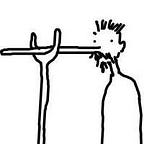Entertainment
Part of A Better Guide to Běijīng’s Practical A-Z
The home-grown entertainment is Běijīng opera (京剧, Jīng jù) for which the usual great antiquity is either claimed or assumed, but which is an early-19th century or at best late-18th century amalgam of ideas from puppet theatre and other forms. Many a tour group is trotted off to venues where the only Chinese faces will be on the stage, but it is also possible to see performances in historic buildings and in top-rate brand new theatres, where true aficionados will be found.
Shànghǎi is the real home of acrobatics but performances can also be found in Běijīng.
Hotel concierges, only a very few of whom have much of a clue about anything, will often hand over pamphlets for crass song-and-dance shows devised specifically for the foreign market and priced accordingly. Their kick-back is generous.
Cinema is surprisingly popular in China, a country where the fake DVD , the streaming site, and the download rule. New screens are opening all the time with large and comfortable auditoria. Rare, however, is the Chinese-made film that is hailed both by foreign audiences and the Chinese government, and if you can find one it will not be subtitled. Imports subtitled in Chinese rule the box office.
Drama in English is rarely available unless a foreign company is visiting, when you’ll find tickets for less than you’d pay at home. There’s a growing number of smaller artsy venues with performances of various kinds.
There are assorted concert halls with performances of traditional Chinese music, modern Chinese orchestral music, and the Western canon, and many stars of classical music now visit Běijīng.
But live popular music is Běijīng’s strength, with punk and electronica particularly common, and there are several small city venues of long standing that throb most nights of the week. Both drinks and ticket prices are modest. Several hotels compete to offer bars for those who want to preen and be seen, with live lounge music. Jazz can also be found, but good jazz rarely (try Shànghǎi). The Workers’ Stadium is used as a venue for Asian rock stars and foreigners on world tours although there’s often a black market for tickets at eye-watering prices.
Clubbing is much like clubbing anywhere else and unlikely to impress serious clubbers from overseas. There’s sometimes a bit of Chinoiserie in the décor, but the same repertoire of sounds and often the same DJs: big international names often visit.
Bars, cafés, and fusions of these where younger expatdom and better-off Chinese meet tend to occur in clumps, and range from the tawdry to the self-consciously hip and overpriced, with a few quietly and comfortably positioned in the middle. Many cheaper and livelier options (also true of nightclubs) can be found in the northwest around a cluster of universities.
To widespread relief, karaoke (卡拉OK, kālā OK) has now been largely swept away into well-organised and well-padded specialist venues. There’s plenty of English-language material on menus.
For details of venues see Entertainment and Nightlife.
To sample what’s currently available pick up free English-language listings magazines Time Out Beijing or The Beijinger, or scan www.timeoutbeijing.com, or thebeijinger.com.
Next in Practical A–Z: Festivals and Public Holidays
Previous: Embassies and Consulates
Practical A–Z Index
Main Index of A Better Guide to Beijing.
